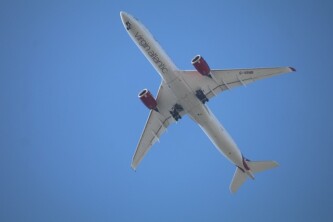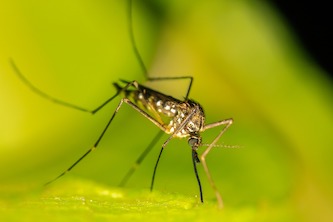A really cool thing just happened in the aviation world! The first flight from London to America that used only alternative fuels took off from Heathrow airport. This is a big deal because it shows that airlines can find greener ways to fly. But there’s still one problem – there isn’t always enough alternative fuel available.
This flight is a big step in the aviation industry’s fight against climate change. By using 100% green fuels, they’re showing that planes can travel long distances without using regular fossil fuels.
Alternative fuels, like biofuels made from plants and algae, can help reduce the pollution caused by planes. They’re made from renewable resources, which means they’re better for the environment.
Even though alternative fuels are great, there are still challenges to overcome. We need more investment and research to make sure we can make enough of these fuels and have a steady supply. But this flight is a reminder that we’re on the right track to making flying more sustainable.
Original news source: Moment transatlantic flight using 100% green fuels takes off from Heathrow (BBC)
Listen
Slow
Normal
Fast
Group or Classroom Activities
Warm-up Activities:
– News Summary
Instructions:
1. Read the article to the students or provide them with a copy.
2. In pairs or small groups, have the students summarize the main points of the article in their own words.
3. Each group will then share their summary with the class.
– Opinion Poll
Instructions:
1. Divide the class into small groups.
2. Assign each group a specific question related to the article (e.g. “Do you think airlines should be required to use alternative fuels?”).
3. Have the groups discuss the question and come up with their own opinions.
4. Each group will then present their opinions to the class and conduct an informal poll to see how many students agree or disagree with their viewpoint.
– Vocabulary Pictionary
Instructions:
1. Write down key vocabulary words from the article on individual slips of paper.
2. Divide the class into pairs or small groups.
3. One student from each group will pick a slip of paper and without showing it to the others, draw a picture to represent the word.
4. The other students in the group must guess the word based on the drawing.
5. Repeat with different words and rotate the roles within the group.
– Speed Summarizing
Instructions:
1. Divide the class into pairs.
2. Give each pair a timer (e.g. one minute).
3. One student will start summarizing the article to their partner, trying to include as much information as possible within the given time.
4. When the time is up, the roles switch and the other student must summarize what they remember from their partner’s summary.
5. Have a few rounds and see how much information the students can retain and relay to their partners.
– Pros and Cons
Instructions:
1. Divide the class into two groups.
2. Assign one group to come up with the pros of using alternative fuels in aviation and the other group to come up with the cons.
3. Give the groups some time to brainstorm and discuss their points.
4. Each group will then present their arguments to the class.
5. Encourage open discussion and debate between the groups, allowing students to ask questions and challenge each other’s viewpoints.
Comprehension Questions:
1. What is significant about the recent flight from London to America?
2. Why is it important that airlines find greener ways to fly?
3. What are alternative fuels and how can they help reduce pollution from planes?
4. What are some challenges that need to be overcome in order to use alternative fuels more widely?
5. How can more investment and research help in making alternative fuels more accessible?
6. Why is it important to have a steady supply of alternative fuels?
7. What does it mean to make flying more sustainable?
8. What message does the recent flight from London to America send about the future of aviation and the environment?
Go to answers ⇩
Listen and Fill in the Gaps:
A really cool thing just happened in the aviation world! The (1)______ flight from London to America that used only alternative (2)______ took off from Heathrow airport. This is a big deal because it (3)______ that (4)______ can find greener ways to fly. But there’s still one problem – there isn’t always enough (5)______ fuel available.
This flight is a big step in the aviation industry’s (6)______ against (7)______ change. By using 100% green fuels, they’re showing that (8)______ can travel long distances without using regular fossil fuels.
(9)______ fuels, like (10)______ made from plants and algae, can help reduce the pollution (11)______ by planes. They’re made from renewable resources, which (12)______ they’re better for the environment.
Even though alternative fuels are great, there are still challenges to (13)______. We need more investment and research to make sure we can make enough of these fuels and have a steady (14)______. But this (15)______ is a reminder that we’re on the right (16)______ to making flying more sustainable.
Go to answers ⇩
Discussion Questions:
Students can ask a partner these questions, or discuss them as a group.
1. What is alternative fuel and why is it important for the aviation industry?
2. How would you feel if all flights started using alternative fuels instead of regular fossil fuels?
3. Do you think it’s important for airlines to find greener ways to fly? Why or why not?
4. What are some benefits of using biofuels made from plants and algae?
5. How do alternative fuels help reduce pollution caused by planes?
6. Do you think there should be more investment and research in alternative fuels? Why or why not?
7. Why is it important to have a steady supply of alternative fuels for the aviation industry?
8. How do you think using alternative fuels can make flying more sustainable?
9. What are some challenges that the aviation industry needs to overcome in order to use alternative fuels more widely?
10. How do you think using alternative fuels can contribute to the fight against climate change?
11. Do you think it’s possible for all flights to eventually use only alternative fuels? Why or why not?
12. What are some other industries that could benefit from using alternative fuels?
13. How do you think the use of alternative fuels will impact the environment in the long run?
14. Do you like the idea of using renewable resources to make fuel? Why or why not?
15. How do you think the aviation industry can encourage more airlines to use alternative fuels?
Individual Activities
Vocabulary Meanings:
Match each word to its meaning.
Words:
1. aviation
2. alternative
3. fuels
4. greener
5. pollution
6. renewable
7. investment
8. sustainable
Meanings:
(a) More environmentally friendly
(b) Resources that can be replaced or replenished
(c) Harmful substances that contaminate the air, water, or land
(d) Substances that are burned to produce energy
(e) Money or capital put into something to make it better
(f) The industry of flying planes and helicopters
(g) Able to be maintained or continued for a long time
(h) Different or another option
Go to answers ⇩
Multiple Choice Questions:
1. What is the significance of the first flight from London to America that used only alternative fuels?
(a) It proves that alternative fuels are not effective.
(b) It demonstrates that regular fossil fuels are better for the environment.
(c) It has no impact on the aviation industry’s fight against climate change.
(d) It shows that airlines can find greener ways to fly.
2. What are alternative fuels made from?
(a) Fossil fuels
(b) Renewable resources
(c) Plants and algae
(d) Non-renewable resources
3. How do alternative fuels help reduce pollution caused by planes?
(a) They are made from renewable resources.
(b) They are cheaper than regular fossil fuels.
(c) They are easier to produce than regular fossil fuels.
(d) They have no impact on pollution caused by planes.
4. What is one challenge that needs to be overcome in using alternative fuels for planes?
(a) Alternative fuels are already widely available.
(b) Alternative fuels are more expensive than regular fossil fuels.
(c) Alternative fuels have a negative impact on the environment.
(d) More investment and research are needed.
5. What does the article say about the availability of alternative fuel?
(a) There is an abundant supply of alternative fuel.
(b) There isn’t always enough alternative fuel available.
(c) Alternative fuel is only available in certain countries.
(d) Alternative fuel is more readily available than regular fossil fuels.
6. What is the main message of the article?
(a) Alternative fuels are not effective in reducing pollution caused by planes.
(b) The aviation industry is not making any progress in reducing pollution.
(c) The first flight using only alternative fuels is a positive step towards making flying more sustainable.
(d) The aviation industry should continue using regular fossil fuels.
7. What is the benefit of using alternative fuels for planes?
(a) They are cheaper than regular fossil fuels.
(b) They are easier to produce than regular fossil fuels.
(c) They are better for the environment.
(d) They have no impact on pollution caused by planes.
8. What does the article say about the future of alternative fuels for planes?
(a) More investment and research are needed to ensure a steady supply.
(b) Alternative fuels are already widely available and do not require further development.
(c) Alternative fuels are not a viable option for planes in the future.
(d) Alternative fuels have a negative impact on the environment.
Go to answers ⇩
True or False Questions:
1. The flight serves as a reminder that progress is not being made towards making flying more sustainable.
2. By using 100% green fuels, the flight showed that planes can travel long distances without regular fossil fuels.
3. This flight is significant because it demonstrates that airlines can find greener ways to fly.
4. The aviation industry’s fight against climate change took a big step forward with this flight.
5. The first flight from London to America using traditional fuels recently took off from Heathrow airport.
6. Alternative fuels, such as biofuels made from plants and algae, can help reduce pollution caused by planes.
7. These fuels are made from non-renewable resources, making them worse for the environment.
8. Despite their drawbacks, there are no challenges to overcome in terms of producing enough alternative fuels.
Go to answers ⇩
Write a Summary:
Write a summary of this news article in two sentences.
Check your writing now with the best free AI for English writing!
Writing Questions:
Answer the following questions. Write as much as you can for each answer.
Check your answers with our free English writing assistant!
1. What is the significance of the first flight from London to America that used only alternative fuels?
2. How can alternative fuels help reduce pollution caused by planes?
3. What are alternative fuels made from?
4. What challenges do we still face in using alternative fuels for aviation?
5. What does this flight remind us about the future of flying?
Answers
Comprehension Question Answers:
1. What is significant about the recent flight from London to America?
The significant thing about the recent flight from London to America is that it used only alternative fuels, showing that planes can travel long distances without using regular fossil fuels.
2. Why is it important that airlines find greener ways to fly?
It is important for airlines to find greener ways to fly because it helps reduce pollution and fight against climate change. Regular fossil fuels used in planes contribute to greenhouse gas emissions, which harm the environment.
3. What are alternative fuels and how can they help reduce pollution from planes?
Alternative fuels are fuels made from renewable resources, such as biofuels made from plants and algae. They can help reduce pollution from planes because they produce fewer greenhouse gas emissions compared to regular fossil fuels.
4. What are some challenges that need to be overcome in order to use alternative fuels more widely?
Some challenges that need to be overcome to use alternative fuels more widely include the need for more investment and research to ensure a steady supply of these fuels. Additionally, the production of alternative fuels needs to be scaled up to meet the demand of the aviation industry.
5. How can more investment and research help in making alternative fuels more accessible?
More investment and research can help in making alternative fuels more accessible by improving the production processes and finding more efficient ways to produce these fuels. It can also help in developing new technologies and infrastructure to support the widespread use of alternative fuels.
6. Why is it important to have a steady supply of alternative fuels?
It is important to have a steady supply of alternative fuels because it ensures that airlines can consistently use greener fuels and reduce their reliance on regular fossil fuels. A steady supply also helps in meeting the growing demand for alternative fuels in the aviation industry.
7. What does it mean to make flying more sustainable?
Making flying more sustainable means reducing the negative impact of air travel on the environment. This includes reducing greenhouse gas emissions, using alternative fuels, improving fuel efficiency, and implementing other eco-friendly practices in the aviation industry.
8. What message does the recent flight from London to America send about the future of aviation and the environment?
The recent flight from London to America sends a message that the future of aviation can be greener and more sustainable. It shows that alternative fuels can be used for long-distance flights, which is a big step towards reducing the environmental impact of air travel. It also highlights the need for further investment and research to make alternative fuels more accessible and widely used in the aviation industry.
Go back to questions ⇧
Listen and Fill in the Gaps Answers:
(1) first
(2) fuels
(3) shows
(4) airlines
(5) alternative
(6) fight
(7) climate
(8) planes
(9) Alternative
(10) biofuels
(11) caused
(12) means
(13) overcome
(14) supply
(15) flight
(16) track
Go back to questions ⇧
Vocabulary Meanings Answers:
1. aviation
Answer: (f) The industry of flying planes and helicopters
2. alternative
Answer: (h) Different or another option
3. fuels
Answer: (d) Substances that are burned to produce energy
4. greener
Answer: (a) More environmentally friendly
5. pollution
Answer: (c) Harmful substances that contaminate the air, water, or land
6. renewable
Answer: (b) Resources that can be replaced or replenished
7. investment
Answer: (e) Money or capital put into something to make it better
8. sustainable
Answer: (g) Able to be maintained or continued for a long time
Go back to questions ⇧
Multiple Choice Answers:
1. What is the significance of the first flight from London to America that used only alternative fuels?
Answer: (d) It shows that airlines can find greener ways to fly.
2. What are alternative fuels made from?
Answer: (c) Plants and algae
3. How do alternative fuels help reduce pollution caused by planes?
Answer: (a) They are made from renewable resources.
4. What is one challenge that needs to be overcome in using alternative fuels for planes?
Answer: (d) More investment and research are needed.
5. What does the article say about the availability of alternative fuel?
Answer: (b) There isn’t always enough alternative fuel available.
6. What is the main message of the article?
Answer: (b) The aviation industry is not making any progress in reducing pollution.
7. What is the benefit of using alternative fuels for planes?
Answer: (c) They are better for the environment.
8. What does the article say about the future of alternative fuels for planes?
Answer: (a) More investment and research are needed to ensure a steady supply.
Go back to questions ⇧
True or False Answers:
1. The flight serves as a reminder that progress is not being made towards making flying more sustainable. (Answer: False)
2. By using 100% green fuels, the flight showed that planes can travel long distances without regular fossil fuels. (Answer: True)
3. This flight is significant because it demonstrates that airlines can find greener ways to fly. (Answer: True)
4. The aviation industry’s fight against climate change took a big step forward with this flight. (Answer: True)
5. The first flight from London to America using traditional fuels recently took off from Heathrow airport. (Answer: False)
6. Alternative fuels, such as biofuels made from plants and algae, can help reduce pollution caused by planes. (Answer: True)
7. These fuels are made from non-renewable resources, making them worse for the environment. (Answer: False)
8. Despite their drawbacks, there are no challenges to overcome in terms of producing enough alternative fuels. (Answer: False)
Go back to questions ⇧















